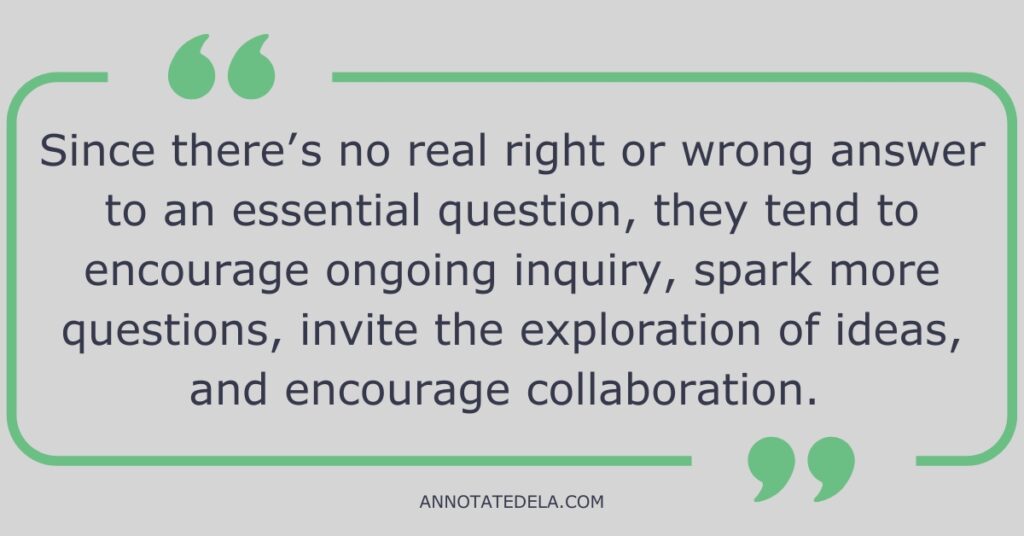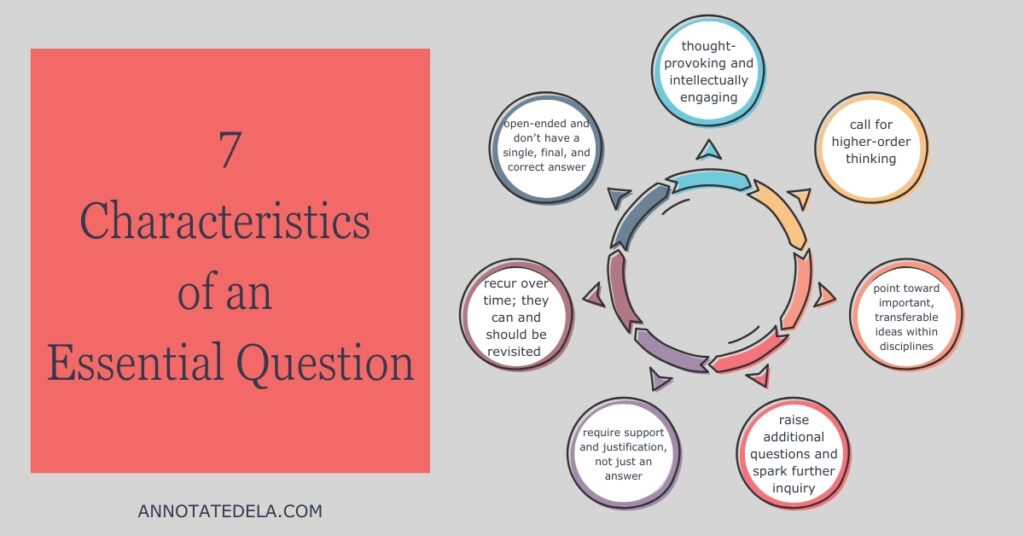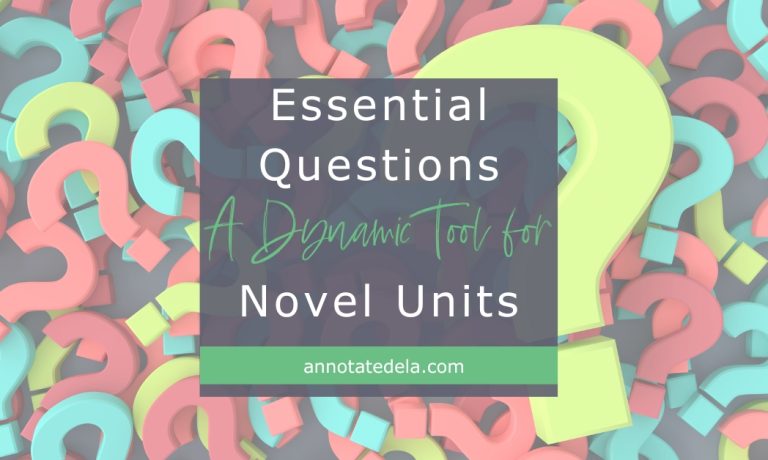Essential questions encourage inquiry, spark more questions, invite the exploration of ideas, and encourage collaboration — while allowing students to draw their own conclusions about the subject.
This is one of the most powerful tools at a teacher’s disposal. With our students’ apathy and lack of motivation, choice, and curiosity are a teacher’s ally.
Essential questions are one way to ignite curiosity, and students can choose how to answer because there are no right or wrong answers to essential questions.
Let’s explore the power of EQs in our novel units and for deeper thinking.
Why Use Essential Questions

Essential questions encourage students to be curious and explore the topic on a deeper level; creating an inquiry-based learning environment. Students become critical thinkers and begin searching for evidence to support their thinking.
Since there’s no right or wrong answer to an EQ, they tend to encourage ongoing inquiry, spark more questions, invite the exploration of ideas, and encourage collaboration — all while allowing students to draw their own conclusions about the material.
When used with a novel unit, EQs provide a purpose for reading and help students search for evidence from the text; it becomes important to the student to find the evidence and prove their thinking is “right.”
Tracking evidence supports writing and using evidence to support ideas/arguments.
Characteristics of an Essential Question

According to Jay McTighe and Grant Wiggins in their book, Essential Questions: Opening Doors to Student Understanding essential questions have seven distinct characteristics.
7 Characteristics of an EQ
- EQ are open-ended and don’t have a single, final, and correct answer
- EQ are thought-provoking and intellectually engaging. They also promote discussion and debate.
- EQ call for higher-order thinking, such as analysis, inference, evaluation, and prediction. They can’t be effectively answered by recall alone.
- EQ point toward important, transferable ideas within disciplines.
- EQ raise additional questions and spark further inquiry.
- EQ require support and justification, not just an answer.
- EQ recur over time. They can and should be revisited again and again.
Crafting Essential Questions for a Novel Unit
First, consider the topics and themes of the novel.
Next, what do you want students to take away from the reading? What is the deeper reason for reading the novel? Take the standards into account.
Draft the question and then ask yourself the following questions:
- Is the question open-ended?
- Does the question encourage discussion and debate?
- Does the question require higher-level thinking? More than a recall of what was read?
- Does the question allow students to transfer their knowledge to other areas of life and school?
- Does the question spark more questions?
- Is justification and support from the novel required to answer the question?
- Can the essential question be revisited?
The EQ should meet all of this criteria.
Here are some examples of essential questions:
- How does conflict cause change?
- How does conflict impact who we become?
- Is fair always equal? Is equal always fair?
- To what extent do trauma, tragedy, and adversity build resilience?
- How can you stay true to your identity while fitting into a new situation?
- How can kindness change our situation?
Essential questions are a powerful tool for novel units and deeper understanding in any subject because they promote inquiry and discussion in our classrooms.



